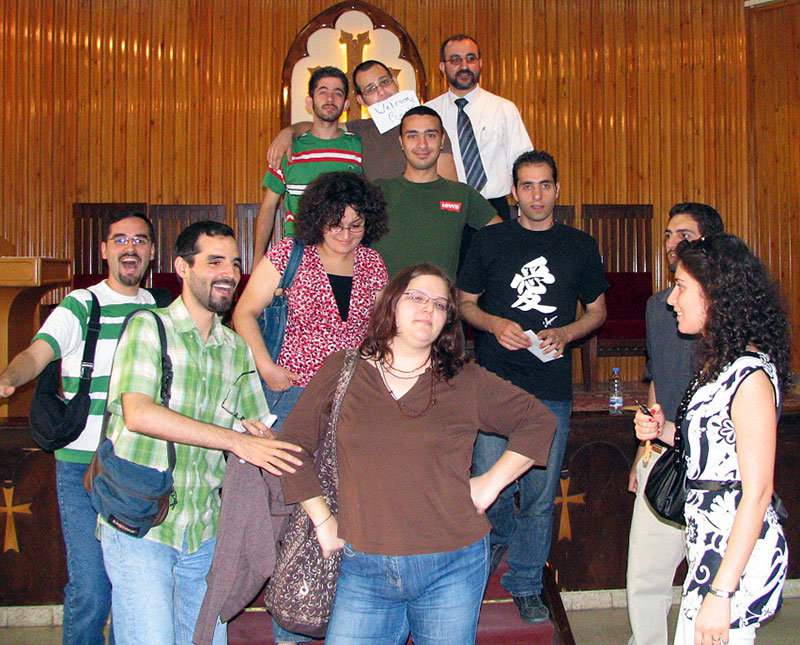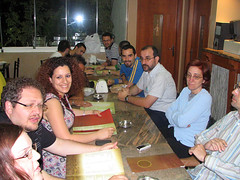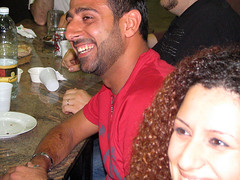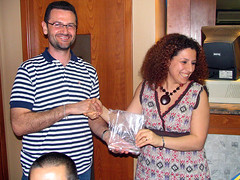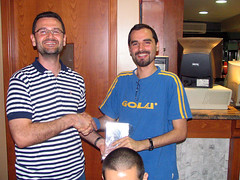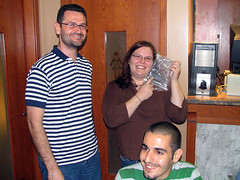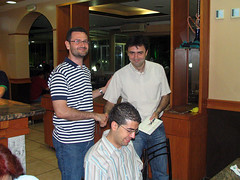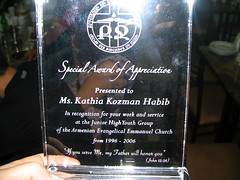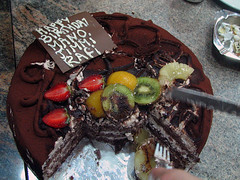Interview conducted by Mr. R. Chilingirian Question One: You mention in one of your articles that the assimilation of the Armenians in the Arab countries is much slower than in the Western Countries, mainly in Europe and the USA. Can you elaborate as to what aspects help the Armenians keep their identity and their language in the Arab countries, and what aspects keep them away from assimilation with the Arabs?
Question One: You mention in one of your articles that the assimilation of the Armenians in the Arab countries is much slower than in the Western Countries, mainly in Europe and the USA. Can you elaborate as to what aspects help the Armenians keep their identity and their language in the Arab countries, and what aspects keep them away from assimilation with the Arabs?
There are a number of issues that need to be taken into consideration when answering this question. Yes, the assimilation of the Armenians in the Middle East and the Arab world has been slower than that of Europe and the West for a number of reasons.
- The social structure and set up of the Middle East communities: The Armenian communities in the Arab world, and especially in Lebanon, have been considered as one of the officially recognized denominations, irrespective of their number. The social setup in some of the Arab countries inherited the millet (denominational) system from the Ottoman Empire. The denominational system, irrespective of its many disadvantages, provided a platform for communities to preserve their national identity, culture, and language.
- The Arab World and the Middle East are mainly Islamic countries and have Islam as their official religion. The Armenians, as a Christian minority living in communities with Muslim majority, have done their utmost to maintain their Christian faith. The Armenian communities in the Middle East and the Arab World have gained the confidence and the trust of the locals. They have taken part and contributed immensely to the economy and infrastructures of their adopted countries. Having said that, it has always been a crucial factor for the Armenian communities to maintain their faith. The Armenian communities created ghettos which, however, should not be translated as living isolated lives and not interacting with the local community. Rather sticking strongly to their churches and social and cultural institutions for their communal/social life and the upbringing of the new generation. The Armenian culture, as we all are aware, is influenced and inspired by the Christian faith. The preservation of their Christian faith helped the Armenian communities in the Middle East to maintain their national identity, too.
- There is also the emotional component. The Arab World and the Middle East are geographically close to Western Armenia, presently under Turkish occupation. The geographical proximity with historical Armenia keeps the Armenian community in the Middle East in a state of alert, prone to preserving their national identity and struggling for the resolution of a just Cause.
- The Arab world welcomed and helped the Armenians after the Genocide. The friendly ties and connections, throughout history, between the Arab and Armenian nations, have been important indicators of the two communities’ understanding of each other and respect towards one another. The Arabs hold great respect for the Armenian nation’s faith and culture. The latter has helped in maintaining the language and the national identity of the Armenian community.
- It is only appropriate to single out Lebanon and its overall social system and its contribution towards the maintenance of the Armenian national identity. Lebanon has been a stronghold of the Armenian community, where they organized themselves, their community life, and developed a strong platform for a community (Kaghout) in various avenues and respects. The development of the Armenian community in Lebanon helped to maintain the “Armenianness” of not only of the Lebanese Armenians, but also of other communities in the Diaspora. The Armenian community in Lebanon acted and still does as a “Data Bank”, where human, educational, cultural, and intellectual resources are provided to other Armenian communities in the world.
Question Two: Lately, we've been reading and hearing a lot from analysts on television, who say that the Lebanese immigrants leaving to the Gulf are easier to get them back to Lebanon, and they are not regarded as immigrants, unlike those who have left, say, for France, USA, or other Western Countries, never to return. Is this also true about the Armenians living in Lebanon, Syria, Egypt, Jordan, Iraq, Iran?
It is imperative that we bear in mind an important element when we talk about those who go to work in the Gulf region. Those people do not and cannot become citizens of these countries, irrespective of the number of years they stay there. Whereas, those who go to Europe and the West for employment, eventually, can become citizens. I believe this is a very important factor as to why people eventually return to their home country after living several years in the Gulf.
The situation of the Armenians in the Diaspora can not be compared with the Gulf experience. The Armenian communities in the countries you mention, Lebanon, Syria, Iraq, Egypt, Iran, and Jordan, have a historical presence in the region. Moreover, the Armenians living in these Diaspora communities are citizens of these countries. We are Lebanese-Armenian, Syrian-Armenian, etc. The cultures of these countries have become ours together with the Armenian one. The latter, however, should not be taken as a negative indicator, especially, if we balance it well with our Armenian Heritage. On the contrary, I consider it to be cultural richness that adds to our identity.
In the end, it is needless to say that we have to bear in mind that we were born in this part of the world because our grandparents and parents were driven out of their homeland. So, we need to navigate in these circumstances and in the countries where we are all now living until such a time when justice for the Armenian Cause will take place. The challenge for the Diaspora Armenians is to preserve their Armenian identity and culture while embracing the local one. I am one of those advocates who call for “moderation” and “balancing” (havasarageshroutyoun) between the dual identities in the Diaspora context. We are Armenians with a rich cultural and ethnic heritage and a struggle for a just cause. At the same time, we are destined to live outside our homeland because of the Genocide. We are thankful and grateful for the countries that hosted us and we share their culture by “balancing” it with ours.









